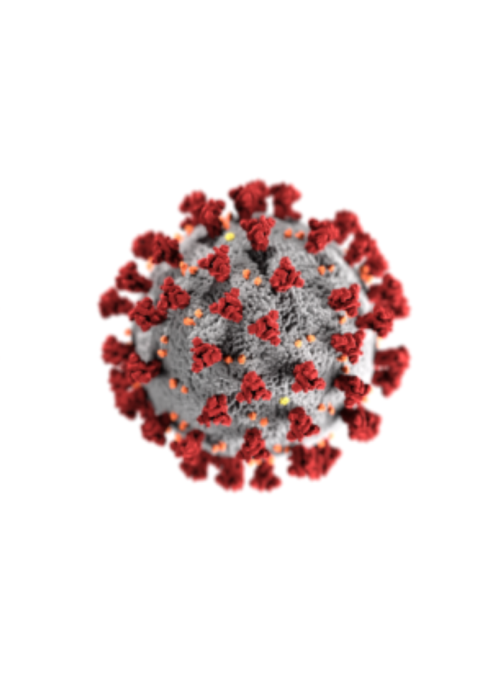
COVID-19 (SARS-CoV-2)
OVERVIEW
Coronavirus disease 2019, better known as COVID-19, is a contagious respiratory illness that was first identified in Wuhan, China in 2019. The illness is caused by the virus severe acute respiratory syndrome coronavirus 2 (SARS-CoV-2). The virus can be spread from person to person and causes a variety of symptoms, which can appear 2-14 days after exposure. It is responsible for the recent global pandemic with more than 770 million confirmed cases, including 6,956,900 deaths. As of 1 September 2023, a total of 13,500,122,024 vaccine doses have been administered (WHO, 2023).
COVID-19 is primarily transmitted through respiratory droplets that are released when an infected person coughs, talks or sneezes. The infected droplets can then been inhaled into the lungs of uninfected people nearby. Common symptoms experienced by people infected with COVID-19 include fever, chills, cough, shortness of breath, fatigue, difficulty breathing, headache, nasal congestion, muscle or body aches, sore throat, loss of smell or taste, nausea or vomiting and diarrhea, however some people who are infected with COVID-19 do not develop any symptoms.
Some populations have been identified as higher risk groups for COVID-19 infection. They include older adults, African Americans, Latinx and those who have underlying medical conditions like heart disease, cancer or obesity. People who fall into higher risk groups may experience more severe symptoms, hospitalizations and deaths related to COVID-19 infections.
VACCINE RESEARCH
Although we have fully approved licensed vaccines, COVID-19 vaccine research continues. The CIR is a clinical study site for the the Pfizer/BioNTech COVID-19 Phase 3 vaccine research study, the Astra Zeneca Phase 3 vaccine research study and the SARS-CoV-2 Epidemiology and Response in Children (SEARCh). Each of these studies are in long term follow up. The CIR is also conducting a clinical research study to test the safety and effectiveness of an intranasal COVID-19 vaccine.
LICENSED VACCINES
The two widely administered mRNA COVID-19 vaccines (manufactured by Pfizer/BioNTech, Moderna received full approval from the FDA in 2022. The vaccines and subsequent booster doses offer protection from the latest COVID variants and are administered during the fall.
The public is still being encouraged to use the universally accepted prevention methods including good hand hygiene, wearing personal protective equipment for those in high risk groups, frequent cleaning and disinfection of devices and surfaces and social distancing where appropriate.
